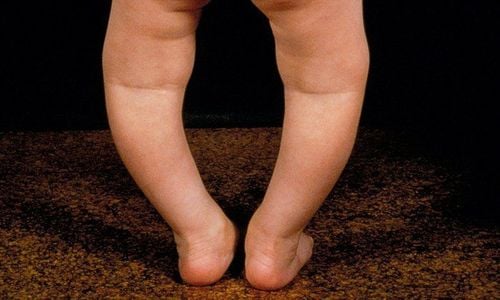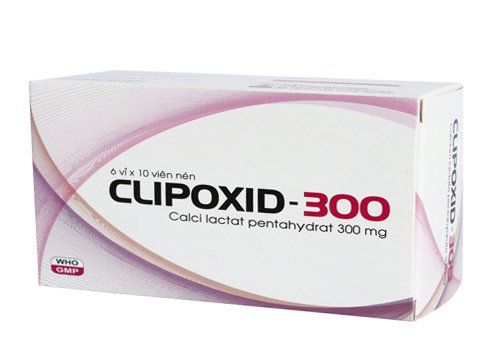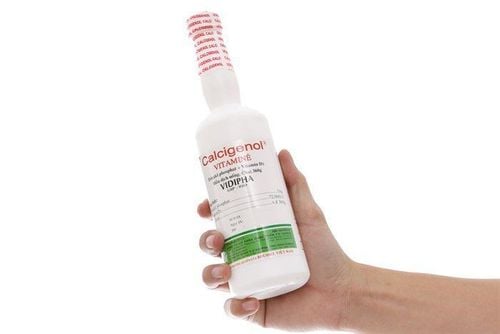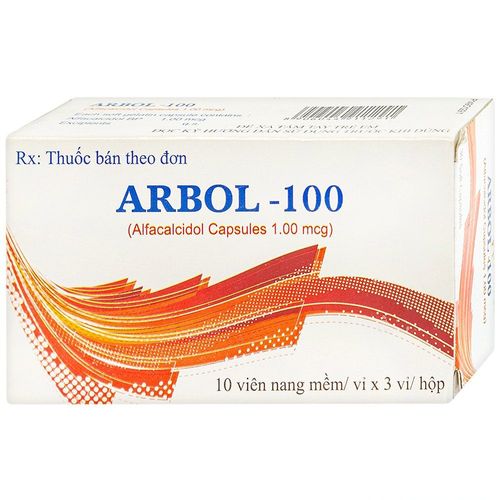This is an automatically translated article.
The article is professionally consulted Master, Doctor Phan Ngoc Hai - Department of Pediatrics - Neonatology - Vinmec Danang International General Hospital. Dr. Hai used to work at the Neonatology Department of Da Nang Obstetrics and Gynecology Hospital and Hoan My Da Nang Hospital. His strength is in general pediatric examination and treatment, neonatal examination and treatment, pediatric resuscitation.
Rickets in children has always been a top health concern. Rickets often occurs mainly due to vitamin D deficiency. Vitamin D supplementation is essential in the prevention and treatment of rickets.
1. Rickets in children
Rickets is one of the disorders of the child's body, occurring due to a deficiency of substances in the body, specifically a lack of vitamin D, phosphate or calcium, resulting in weak bones.Rickets is common in children under 3 years old because during this period, the child's skeletal system is developing strongly.
Manifestations of vitamin D deficiency rickets:
Early symptoms:
Children often cry, do not sleep well, or startle. Night sweats even when it's cold. Signs of licking: Children have hair loss on the nape of the neck. Physical retardation. Late symptoms:
Clear signs in bones: Soft skull bones, even concave pressure, skull deformation, flat head. There is a craniocervical tumor, which is common in the forehead and parietal region. Wrist sign due to hypertrophy of the wrist bone head. The rib system of the ribcage is deformed, there may be X- or O-shaped bow legs, early scoliosis. Children are slow in teething, slow to walk, slow to roll, slow to crawl... From time to time, the fontanelle is wide, the fontanel is soft.

Hình ảnh chân vòng kiềng hình chữ X hoặc chữ O ở bệnh nhân nhi còi xương
2. Measures to overcome rickets in children due to vitamin D deficiency
In the body, vitamin D plays a very important role, especially for the skeletal system:Vitamin D participates in bone structure through the mechanism of calcium and phosphorus distribution in the body. Vitamin D increases the absorption of calcium and phosphorus from the gastrointestinal tract. Vitamin D together with parathyroid hormone participates in the metabolism of calcium and phosphorus, stimulates calcium deposition of bones. In addition, vitamin D is also involved in other functions in the body such as cell division, secretion relations, hormone metabolism, or differentiation of skin cancer cells, bone cancer, etc. .. When the body is deficient in vitamin D, all these processes will be affected. This causes rickets in children and osteoporosis in adults. Therefore, vitamin D supplementation is essential in the prevention and treatment of rickets.
Vitamin D can be supplemented through a daily nutritional diet or directly orally.
Foods containing a lot of vitamin D such as milk, biscuits, cooking oil, cereals, nutritional powders or fish oil, egg yolks,...
Oral vitamin supplements: Depending on the situation Children under 18 months of age: If the diet contains little vitamin D, supplement continuously 400 units/day. vitamin D. If babies are born prematurely, have twins, or have low birth weight: supplement with 400-800 units/day, continuously for the first 15 months after birth. Then maintain dose of 200 units/month repeated every 6 months. Children from 18 to 60 months old: use 400 units/day but only use in season with little sunlight. Pregnant or lactating mothers, if there is not enough vitamin D in the regimen, give supplemental doses of 400-600 units/day of vitamin D or 1000-1200 units/day in the last 3 months of pregnancy. Note: if the vitamin is added too much, it will cause an excess of vitamin D, which manifests as: Anorexia, diarrhea, nausea, kidney stones, ... especially abnormalities in the conjunctival cornea, or encountered band-shaped keratitis in children.
In addition to providing vitamin D from food or oral tablets, mothers can supplement vitamin D for their children by sunbathing. Sunbathing will help provide up to 95% of vitamin D for the body. For effective sunbathing, mothers need to note a few things as follows:
Sunbathe evenly every day, on average for 15-20 minutes. When bathing, it is necessary to expose children's feet and hands so that they can be directly exposed to the sun, increasing calcium absorption. Suitable sunbathing time: before 8 am or after 4-5 pm. Even pregnant or lactating women should sunbathe. Babies and young children should be bathed from the first month after birth. Choose a suitable sunbathing location, so it should be in a cool and well-lit place.

Tắm nắng đều mỗi ngày giúp khắc phục tình trạng còi xương ở trẻ em do thiếu vitamin D
To prevent rickets caused by vitamin D deficiency, in addition to supplementing with vitamin D in many different forms, mothers also need to pay attention to a number of supportive factors to help limit this condition such as:
organize knowledge sessions on nutrition as well as care for children and mothers during pregnancy. Establish a suitable, scientific diet that provides adequate nutrients for both mother and baby, both before pregnancy, during pregnancy, after pregnancy, and during lactation. In addition to vitamin D supplementation, it is necessary to supplement with a combination of calcium and phosphorus. In the first months of life, it is recommended that breastfeeding is the best, exclusive breastfeeding for the first 6 months. This not only helps children limit rickets, but also increases the body's resistance. Do not introduce solid foods to babies too early. Ensure the hygiene of the environment in which the baby is living. Note about cases in which children have intestinal infections... In general, rickets due to vitamin D deficiency is a common disease but can be prevented if the method is known. This condition should be prevented right from the time of pregnancy with a healthy diet, adequate nutrition combined with regular sunbathing habits and vitamin D supplementation when necessary according to the instructions of the doctor. doctor. In addition, parents should supplement their children with supportive products containing lysine, essential micro-minerals and vitamins such as zinc, chromium, selenium, and B vitamins to help fully meet the nutritional needs of children. . At the same time, these essential vitamins also support digestion, enhance nutrient absorption, help improve anorexia as well as rickets and help children eat more appetizing. Parents can also apply the supplement of substances through the mouth and functional foods derived from nature for easy absorption by the baby. The most important thing is that improvement in your baby's symptoms takes place over the long term. Combining many types of functional foods at the same time or changing many types in a short time can make the baby's digestive system unable to adapt and completely not good. Therefore, parents must be really persistent with their children and regularly visit the website vimec.com to update useful baby care information.
The article references the source: National Institute of Nutrition.














